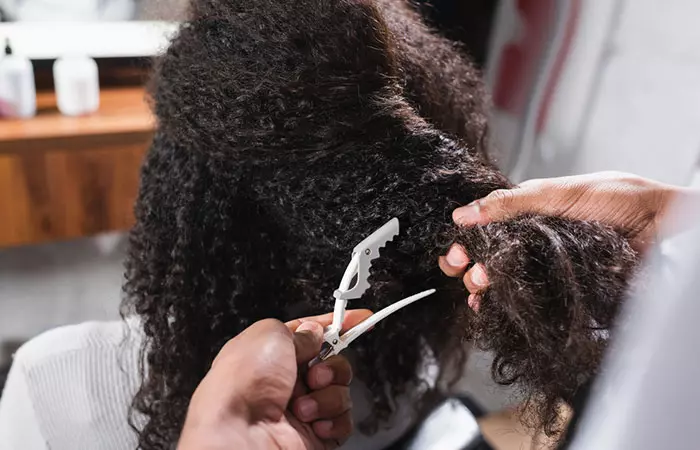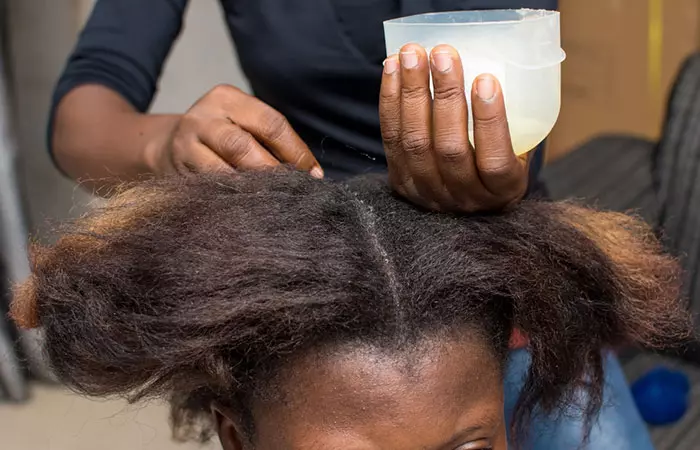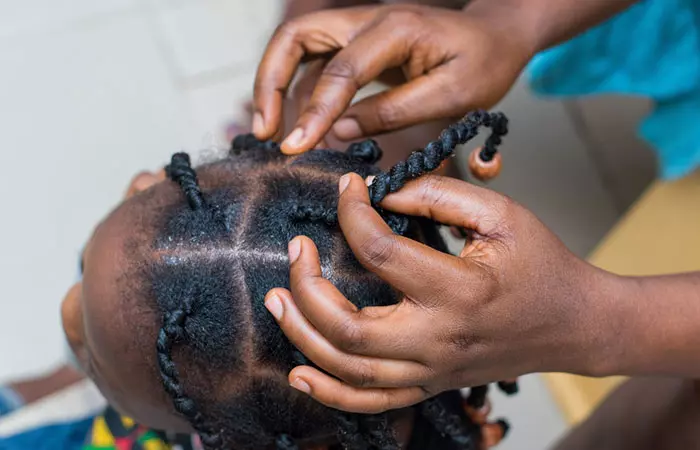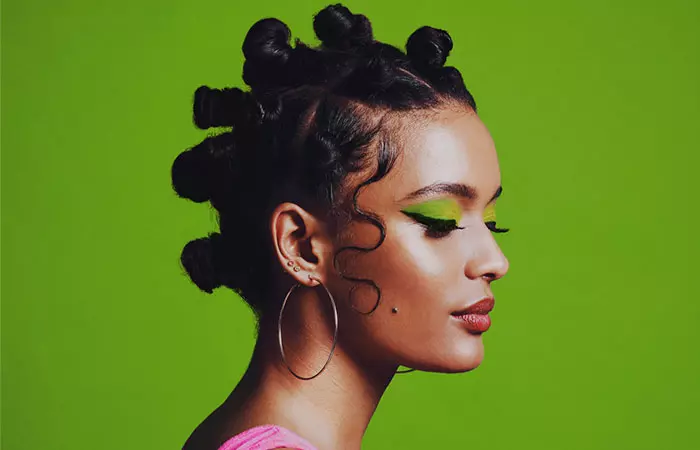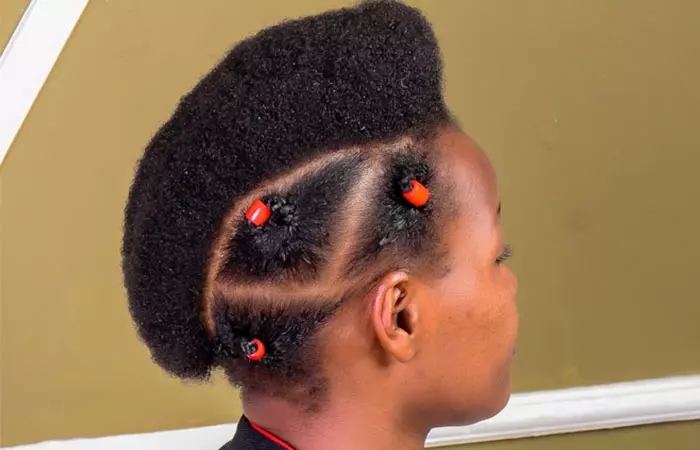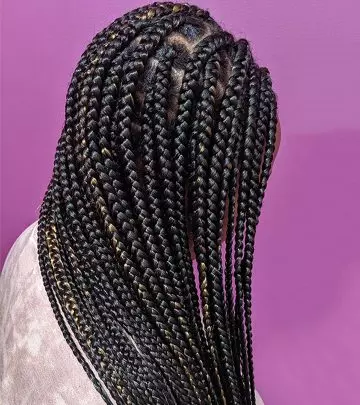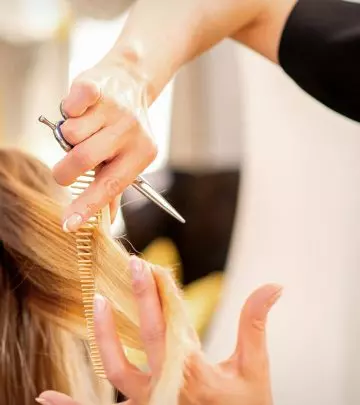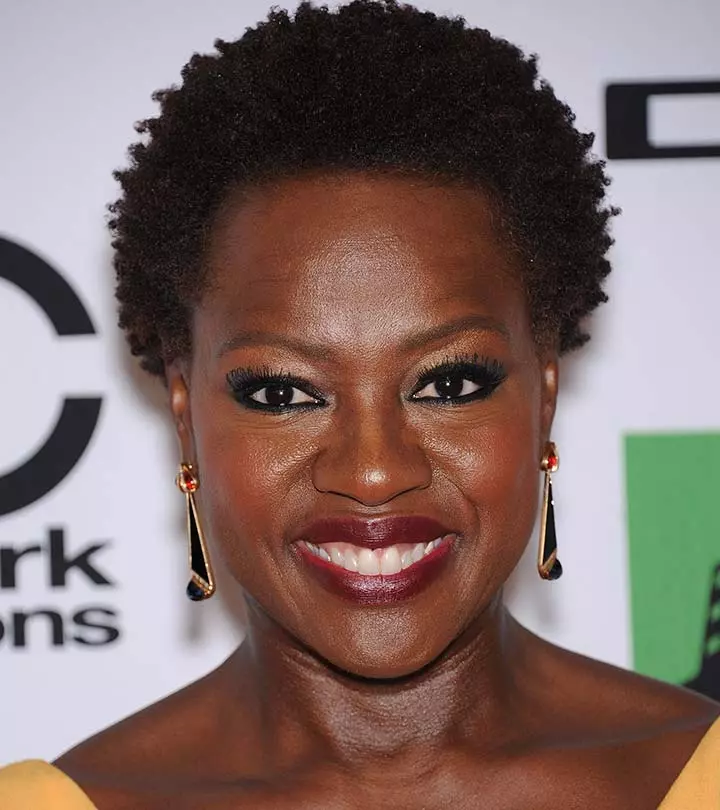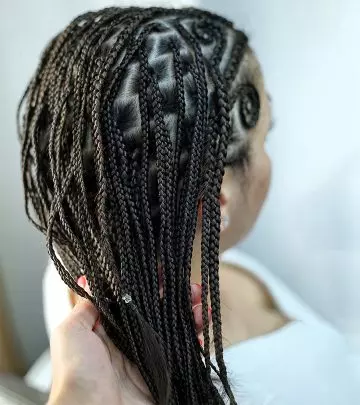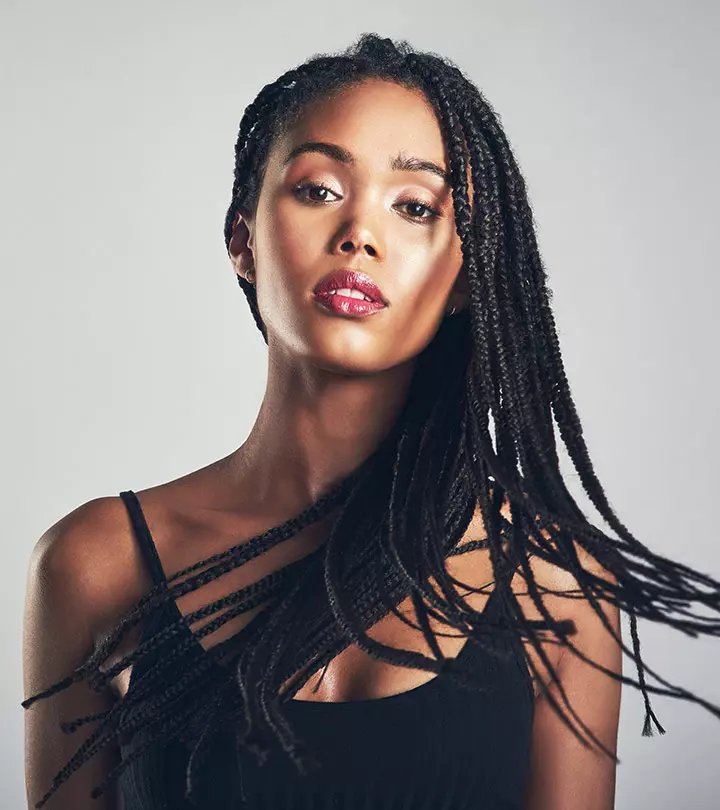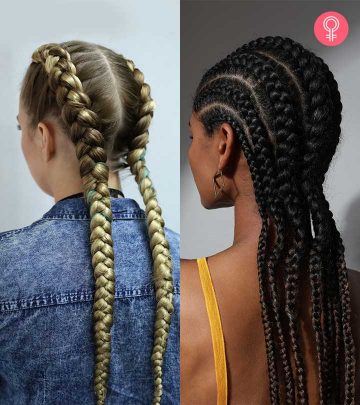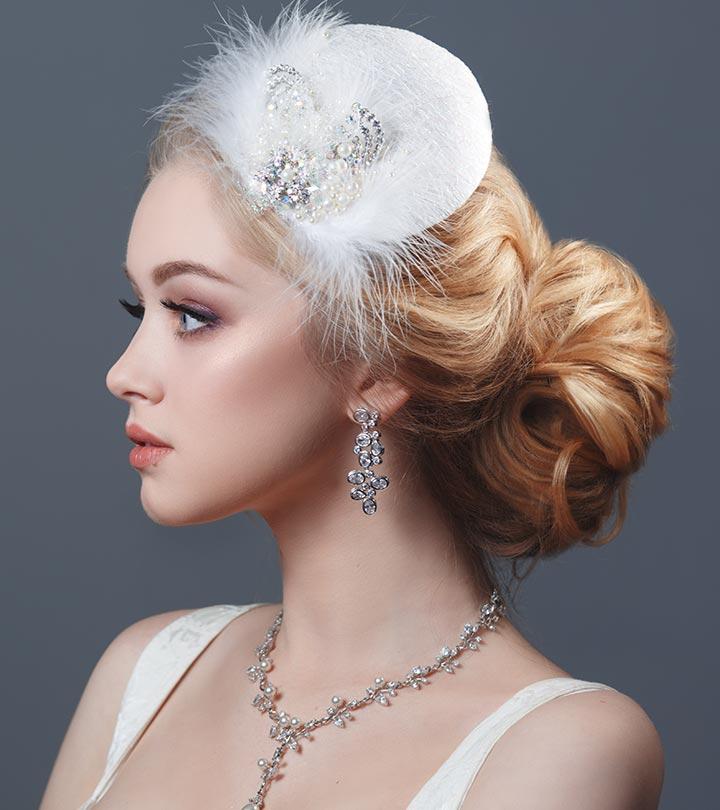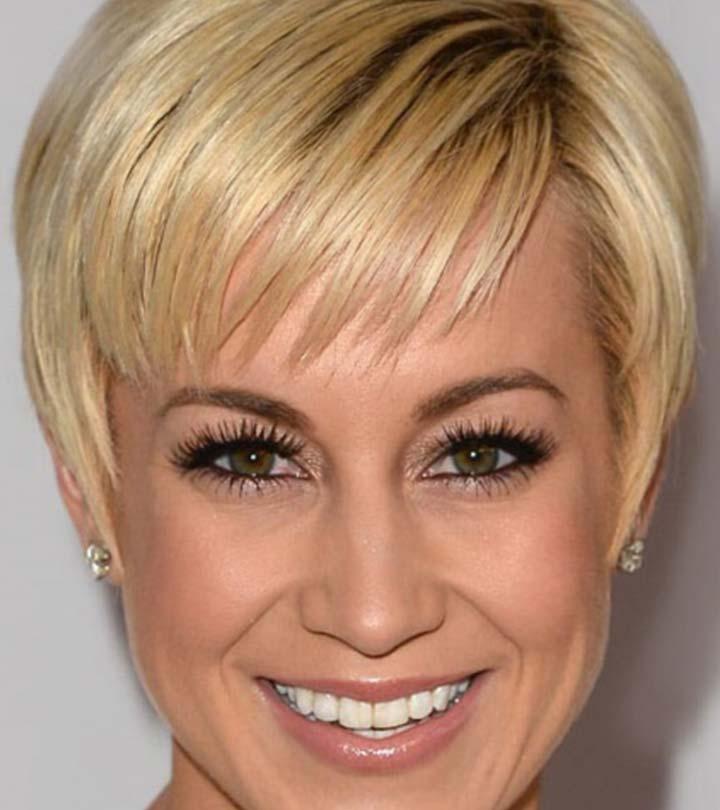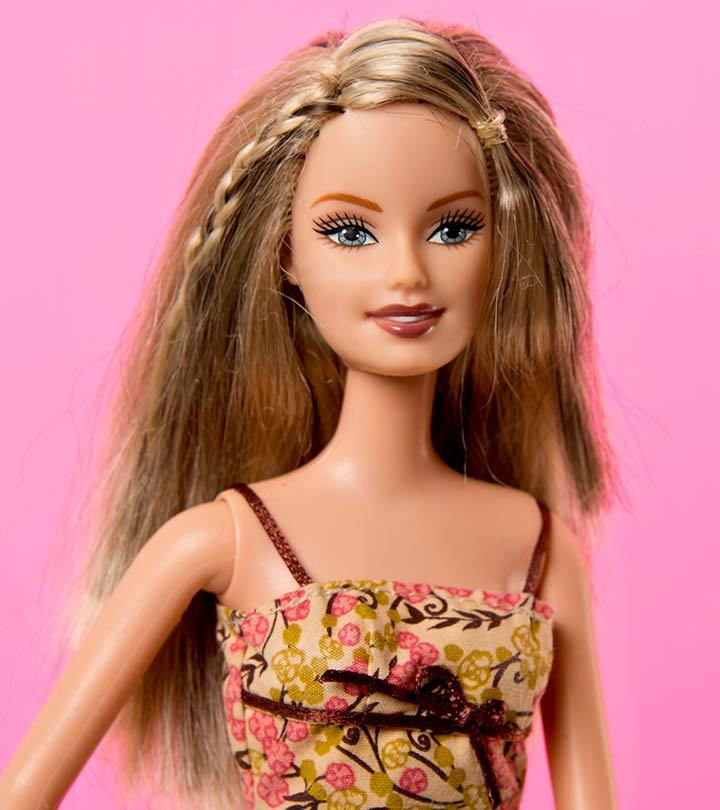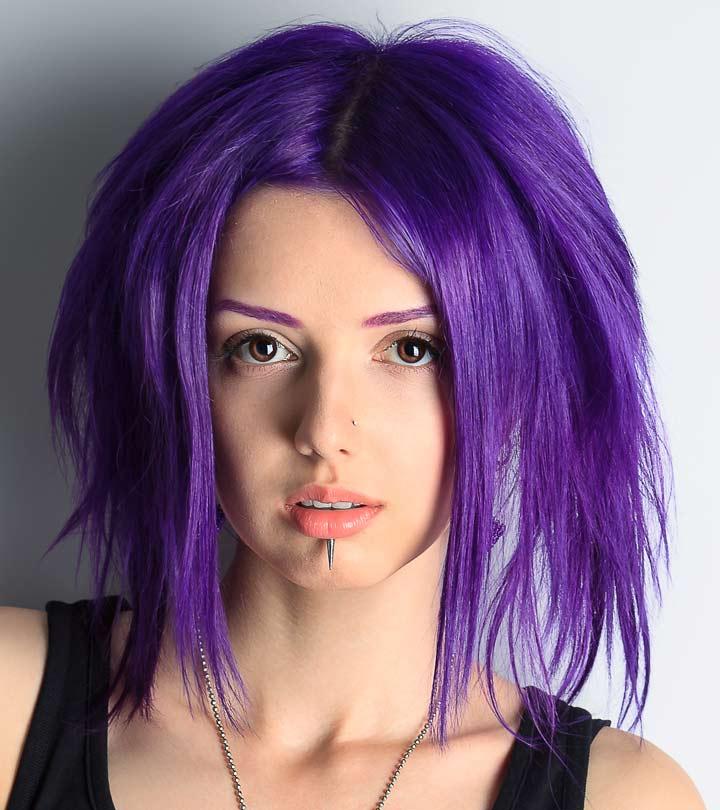How To Do Bantu Knots? A Simple Step-By-Step Guide
Discover a quick and simple guide to rocking this amazing hairdo with style and confidence.
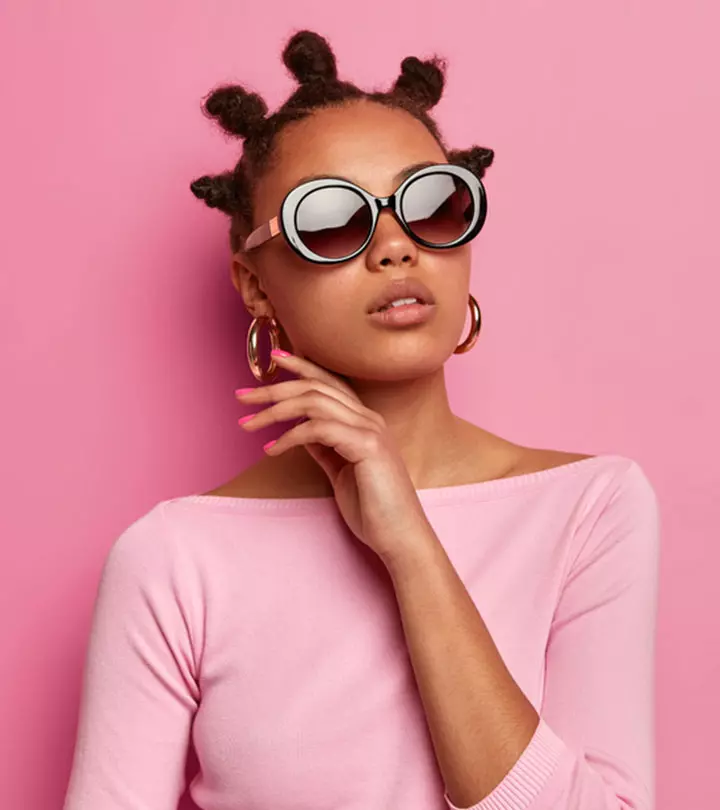
Image: Shutterstock
If you are looking for a trendy yet protective hairstyle to shield your ends from breakage, Bantu knots might just do the trick. But do you know how to do Bantu knots? Bantu knots involve twisting small sections of hair and securing them tightly into knots to retain their moisture and prevent frizz. Leaving your hair in Bantu knots overnight or for an extended period can also enhance your curl pattern, leaving you with amazing curls. Apart from making a bold fashion statement, these knots provide a much-needed reprieve from heat styling, thus helping you get healthier and stronger locks. If you are curious about how to create this stunning look, check out this article for our step-by-step tutorial and more. Read on!
 Before You Get Started
Before You Get Started- Use a satin bonnet or silk head scarf to prevent frizz and friction.
- Apply some coconut oil to your fingertips to help unravel your knots and add shine to your hair.
- You can add dreadlocks to your Bantu knots for a bold and dramatic look.
- Avoid using rubber or elastic bands to secure the knots as they may cause breakage.
In This Article
How Long Should Bantu Knots Stay In?
Bantu knots need to stay in place for at least 6-8 hours to ensure that the hair sets properly and achieves the desired curl pattern. However, many recommend leaving them overnight to allow the hair to fully dry and set, resulting in more defined and longer-lasting curls or waves. If you have thicker or coarser hair, you may need to leave them in for 12 to 24 hours to ensure your hair is completely dry and set. But if you have little to no patience, you can use a hair dryer with a diffuser attachment, leaving your Bantu knots for 1 to 2 hours
Remember, the duration is a matter of experimentation and personal preference. You may need to try different timings to find what works best for your hair type.
Bantu knots are a great way of showing off your personal style and individuality. But in order to do so, you need to know how to do them like a pro. Check out the next section to find out.
How To Do Bantu Knots
While Bantu knots may look difficult, they are quite simple. Here is what you need to do:
1. Prep The Hair
This first step is crucial to creating the perfect Bantu knots. Wash your hair with a sulfate-free shampoo to reduce frizz. Once done, you can use a deep or leave-in conditioner to moisturize your hair and prevent breakage. Then, gently comb your hair with a detangling comb or wide-toothed comb to remove any knots or tangles. Towel-dry your hair partially to remove excess water.
2. Separate The Hair
Use a tail comb or your fingers to section your hair into two or four small two-inch parts and secure them with clips. Remember, the size of the sections will determine the size of your Bantu knots.
 Quick Tip
Quick Tip3. Apply Curl Cream
Take a small amount of light or medium-hold curl cream or styling product and evenly coat each section of your hair. This will help define your curls and keep them smooth and frizz-free.
4. Twist
Twist each section of your hair for a few turns, starting from the base and working your way down to the ends of your hair. Keep the twist tight to create a neat Bantu knot.
 Pro Tip
Pro Tip5. Knot, Set, And Secure
View this post on Instagram
After you have twisted the hair, coil it around itself to form a small knot at the base. Tuck the ends of the hair underneath the knot to secure it in place. You can use bobby pins or hair clips to hold the knot if needed.
6. Repeat
Repeat steps 3 to 7 for each section of the hair. Make sure each knot is twisted tightly and secured properly to ensure they hold their shape.
 Pro Tip
Pro TipYou can leave the Bantu knots overnight to allow them to set and dry completely. Once completely dry, carefully unravel each knot starting from the base. Use your fingers to gently separate the curls and fluff them out for added volume. You can also use a pick or wide-toothed comb to style your hair as desired.
Richelle, a blogger, recounted her experience of doing Bantu knots for the first time. She writes, “I was really impressed with the way it turned out. It was very easy to do and a safer alternative to heat curling (i)!”
With just a little practice and patience, you can create your Bantu knots in no time. What’s more, their versatile nature allows you to create a wide range of stylish looks to sport on several occasions. Find out more about them in the section below.
How To Style Bantu Knots
These creative Bantu knot styling techniques can help express your individuality with style and confidence. You can experiment with the following Bantu knots hairstyles to find the look that suits your personality and preference:
- Half-Up, Half-Down Bantu Knots
View this post on Instagram
An easy and creative way to spice up your Bantu knots. All you need to do is make two or three Bantu knots from the top half, while leaving the bottom half loose for a stylish and playful look.
- Bantu Knot Mohawk
This badass hairstyle requires creating a line of Bantu knots down the center of your head, adding a modern twist to the traditional Bantu knots.
- Bantu Knots With Cornrows
View this post on Instagram
This hairstyle is a chic way to level up your hair game. You can incorporate cornrows into your hairstyle and then twist the remaining hair into Bantu knots for an eye-catching look.
- Bantu Knots With Beads
View this post on Instagram
Add colorful beads to make your hairdo stand out. Thread the beads onto each section of hair before twisting them into Bantu knots to add a pop of color and personality to your hairstyle.
- Bantu Knots With Side Braids
View this post on Instagram
A simple yet stunning way to reinvent this hairdo. Create small braids on one side of your head and twist the remaining hair into Bantu knots on the other side for a sleek look.
Bantu knots are an excellent way of capturing your essence. So, whether you are after a protective style or defined, lustrous curls, Bantu knots offer versatile options for all hair types. While they may seem difficult initially, with just a little bit of persistence and practice, you can master the Bantu knots and skip those expensive trips to the salon in no time!
Frequently Asked Questions
What do Bantu knots symbolize?
Bantu knots symbolize cultural pride and heritage, representing a deep connection to African roots. They also serve as a form of self-expression that celebrates natural hair textures and embraces diversity. In some African cultures, Bantu knots are intricately woven into bridal hairstyles as a symbol of purity, fertility, and marital commitment.
What happens if you leave knots in your hair?
Leaving your hair in knots for an extended period can help set the style, resulting in more defined curls or waves when unraveled. But on the other hand, doing it for too long may cause discomfort or tangling.
How to sleep with Bantu knots?
You can wrap your head in a satin scarf or hair bonnet or use a satin pillowcase to minimize friction and preserve the knot’s shape while sleeping.
Key Takeaways
- Bantu knots offer versatility, serving both a protective style and a method for achieving defined curls or waves without heat styling.
- Achieving flawless Bantu knots involves proper sectioning, twisting, and knotting techniques tailored to your hair type and desired outcome.
- You can side braids or beads to your Bantu knots to create edgy chic looks.
If you are tired of endless trial and error with your natural hair, then you have come to the right place. Check out this tutorial on how to achieve flawless Bantu knots every single time.
Personal Experience: Source
StyleCraze's articles are interwoven with authentic personal narratives that provide depth and resonance to our content. Below are the sources of the personal accounts referenced in this article.
(i) Trying Bantu Knots for the First Time!https://comm350.wordpress.com/2020/05/13/trying-bantu-knots-for-the-first-time/
Read full bio of Eshna Das
Read full bio of Gracia Odile




